Jul
31
2015
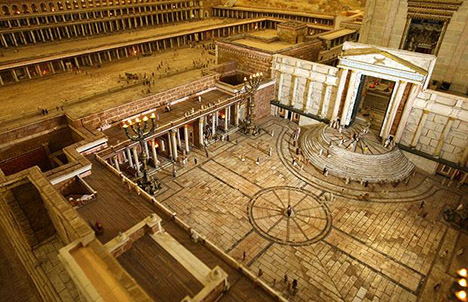
All of the arcane “personal” stipulations in the Torah find their fulfilment in the corporate worship of Israel. Just as the sacrifices were to be without blemish, so also were Israelites to be spotless if they were to stand before God. But the rules for the identification, quarantining and ceremonial cleansing of leprosy only begin with the skin of the worshiper in the wilderness. They then move to the garment, and finally to the house in the Promised Land. A failure in personal holiness would lead eventually to a corruption of corporate worship. James Jordan writes:
Continue reading
Comments Off | tags: AD70, Herod, James Jordan, Leprosy, Leviticus, Matthew, Temple, Zechariah | posted in Biblical Theology, Quotes, The Last Days
Jul
28
2015
“The Forbidden Chapter” in the Tanakh
Did you know that there’s a “forbidden chapter” in the Tanakh (Hebrew Bible)? What’s been hidden from us all these years? It’s changed the lives of hundreds of thousands of Jewish people! Watch till the end for a surprising twist!
Posted by Medabrim in English on Friday, July 24, 2015
Comments Off | tags: AD70, Evangelism, Isaiah | posted in Apologetics, Biblical Theology, The Last Days
Jul
25
2015
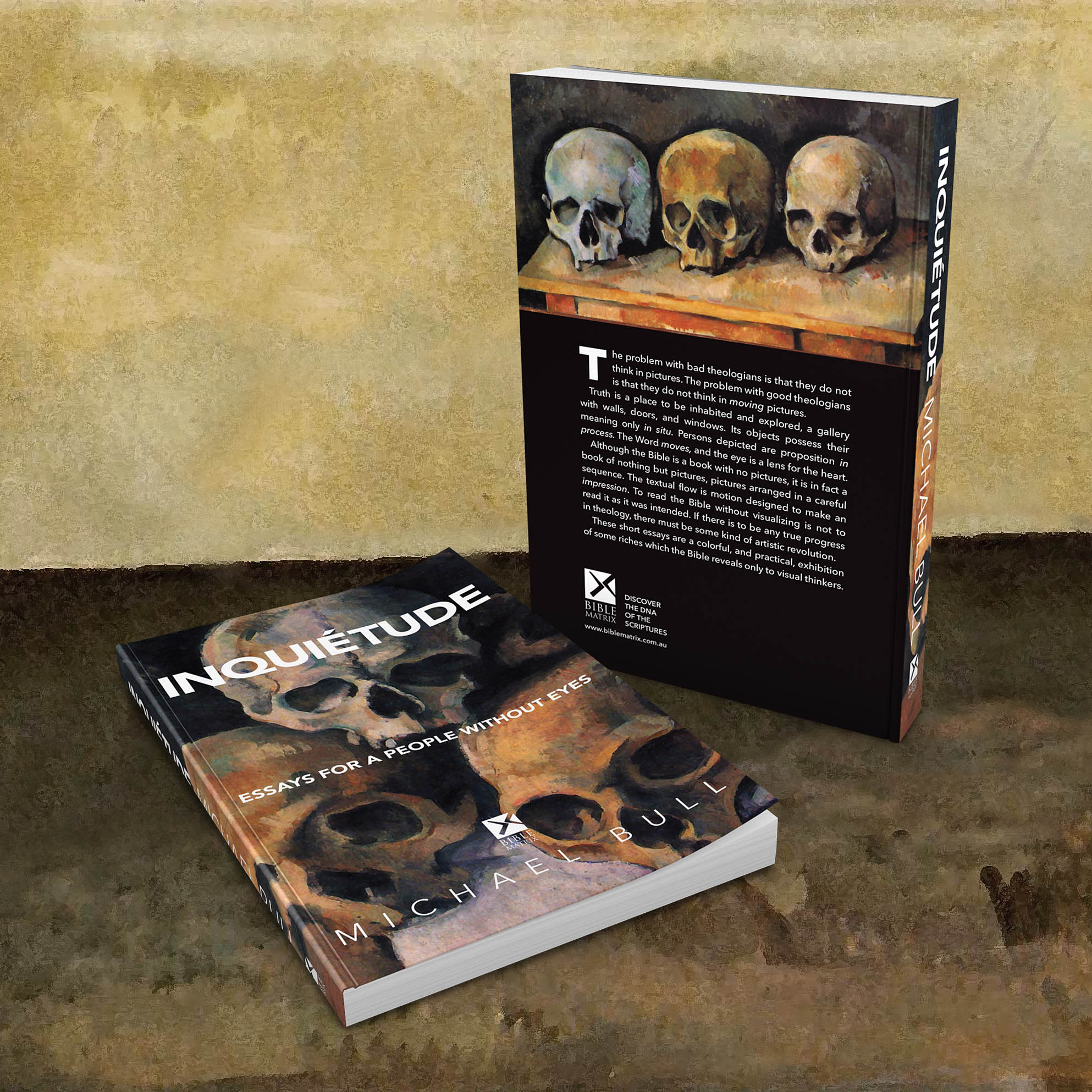
Available AUGUST. Click for larger image.
The problem with bad theologians is that they do not think in pictures. The problem with good theologians is that they do not think in moving pictures.
Continue reading
Comments Off | posted in Bible Matrix, Biblical Theology
Jul
10
2015
What on earth is Jesus doing?

“Based on covenant history, the fact that God’s words now enrage His enemies is not a sign of failure. It is a sign of their imminent doom.”
With same sex marriage now legalized in many Western countries, and militant Islam ravaging the East, Christians might be wondering what God is doing. With the repeated failure of predictions of an imminent second coming, is the Bible any help to us at all in predicting what will happen next? I believe it is.
Continue reading
Comments Off | tags: AD70, Culture, Herod, Islam, Pilate, Revelation, Secular humanism | posted in Biblical Theology, The Last Days
Jul
8
2015
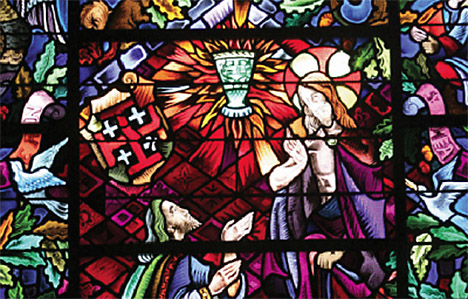
“By the imperative, time is formed into a cup, still empty but formed for the special purpose of being filled with the content demanded by the order.”
The Imperative Comes First
Essay by John Barach
As many people have pointed out, in Christian ethics, the indicative precedes the imperative. First God says, “I am Yahweh your God, who brought you out of the land of Egypt, out of the house of bondage,” and then he gives the Ten Words (“You shall have no other gods before me…”). First Paul tells us what Christ has done and who we are in Christ, and then he summons us to act accordingly. First comes the good news of what God has done for us and then comes the summons to respond in faith and love and new obedience.
Continue reading
Comments Off | tags: Covenant Theology, Eugen Rosenstock-Huessy, John Barach, Ten Commandments | posted in Biblical Theology, Creation, Quotes
Jul
7
2015

“In the days when our courts are declaring that good is evil and evil is good, the recovery of baptism as a delegation of divine legal authority rather than a sign of ‘limited Covenantal obligation’ is crucial.”
Every biblical Covenant is a word from heaven designed to bring a response from the earth. When the laws in the Ark of the testimony were given to Israel, the response of a legal oath was required, intended to culminate in the legal witness of Israel to the nations. Thus, every biblical Covenant is also a process which leads to maturity, beginning with cultivation and ending in representation.
A child must be schooled before he can be employed. A man must be a disciple before he can be an apostle. Adam was to be qualified before he could represent God as a just and merciful judge on earth. But the difference between cultivation and representation is the difference between circumcision and baptism, and this facet of the biblical Covenants is something paedobaptists are unable to accept, at least in its full glory.
Continue reading
Comments Off | tags: Baptism, Circumcision, Covenant Theology, Exodus, Federal Vision, Genesis, Joshua, Moses, Peter Leithart | posted in Bible Matrix, Biblical Theology, Quotes
Jul
6
2015
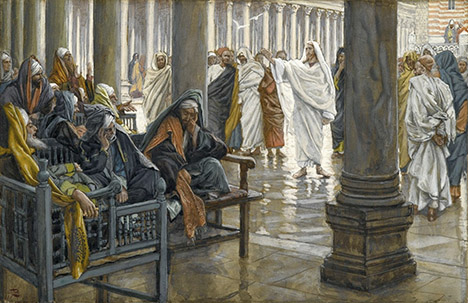
“…who were the Pharisees in their real setting? Where did they come from? There are no such people in the Old Testament, but when we get to Matthew they seem to be hiding behind every rock and shrub.”
Essay by Daniel Hoffman
If people today know anything about the Pharisees, they know them as the villains of the New Testament. Those who know a little more probably have a conception of the Pharisees as overly strict, eating their gruel with a scowl and casting condemnation in every direction, while Jesus was open and chill. Some might go beyond this and imagine the Pharisees as the perfect (or perfectly bad) model of self-salvation: The Pharisees wanted to save themselves by their good works, but the New Testament (it’s thought) is all about salvation through faith, and works are no big deal.
Continue reading
Comments Off | tags: Church History, Daniel Hoffmann, N. T. Wright, Pharisees | posted in Biblical Theology, Quotes, The Last Days
Jun
29
2015
Comments Off | tags: Darren Doane, James Jordan | posted in Biblical Theology
Jun
28
2015
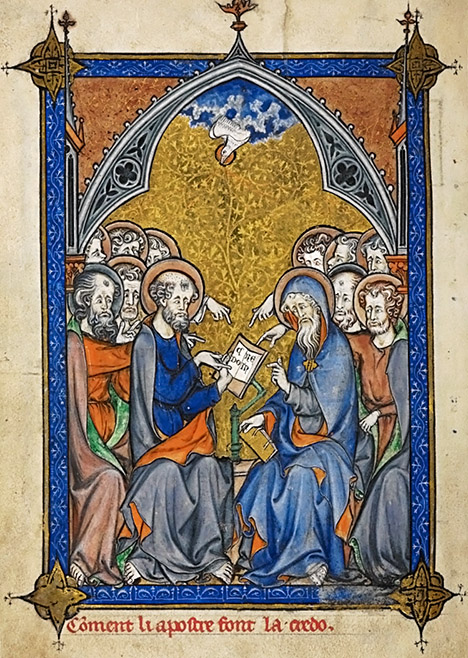
My online friend Tim Nichols has posted an initial batch of theological notes. Not only are they encouraging and inspiring, as far as I can tell I am in agreement with him on all points. Feel free to comment.
Continue reading
Comments Off | tags: Baptism, Communion, Ecclesiology, Tim Nichols | posted in Biblical Theology, Christian Life, Quotes
Jun
24
2015
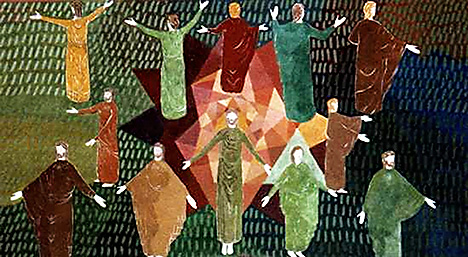
A must-read essay by Toby Sumpter | Theopolis Institute
The unity Jesus is leading us toward has far less to do with hammering out a single organizational structure and far more to do with many different Christian tribes and tongues bringing their respective glories to the King.
There are many legitimate reasons to lament the divided state of the church. Fleshly pride, theological hubris, sectarian rivalries are each in their own ways modern versions of the Galatian heresy, refusing table fellowship with brothers and sisters for whom Christ died. And denominations have frequently played the same role as the names of Paul and Apollos in Corinth, for which we join in Paul’s manifesto to know nothing but Christ and Him crucified.
Continue reading
Comments Off | tags: Babylon, Ecclesiology, Pentecost, Toby Sumpter | posted in Biblical Theology, Quotes

































